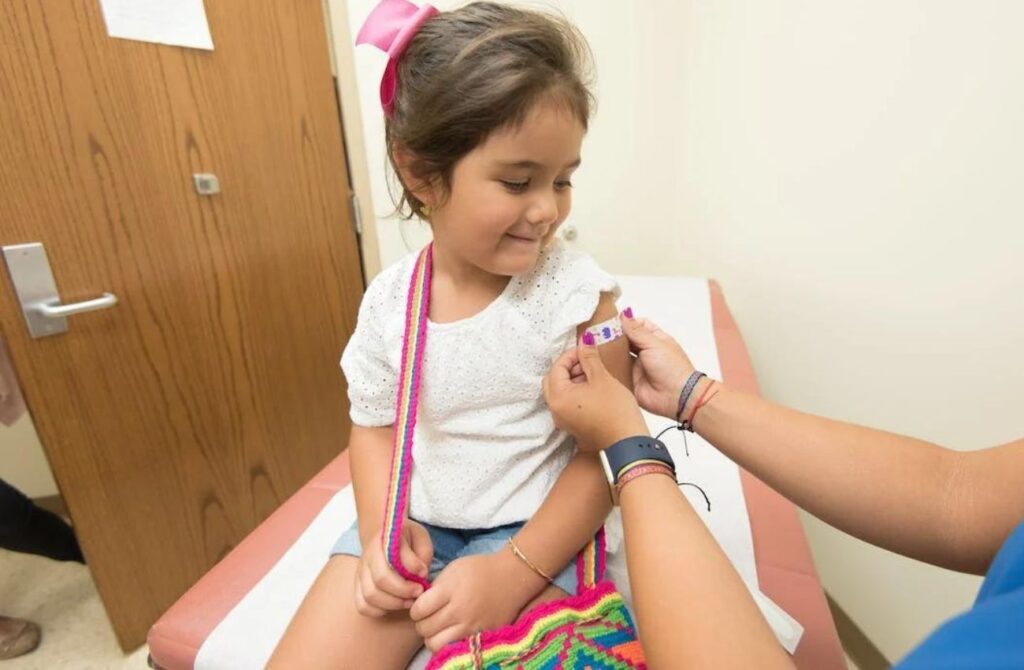Tips from an Expert for Staying Healthy This School Year
We spoke with an expert on the top things parents can do to help their kids keep germs from spreading and ensure a great start to the school year.

Back to school means a lot of things: new backpacks, new teachers, new subjects. Unfortunately, it also means new germs, which our children can bring back home and share with the whole family.
We spoke with Dr. Maria Mahoney, a pediatrician with True North Kressly Pediatrics in Warrington, who shared some of the top things parents can do to help keep their kids healthy and ensure a great start to the school year.
Get Plenty of Sleep

Making sure your children get enough sleep is a crucial part of keeping them healthy and successful in school. Not only is sleep an important part of a child’s physical and emotional health; it also can play a role in how well they do in the classroom.
“The lazy days of summer with later bedtimes and later wake-ups can be tough to readjust. Going back to structured bedtime routines so your child gets plenty of sleep is super important. Sleep is when our bodies recover, repair and grow!” says Dr. Mahoney.
Depending on their age, children should be getting between 8 and 12 hours of sleep each night. Ask your pediatrician how much rest your child needs to function as his or her best self.
Wash Those Hands

It sounds simple, but washing your hands with soap and water is one of the easiest and most effective ways to prevent the spread of illness. Germs are incredibly easy to spread throughout a classroom, especially with frequent eye rubbing and nose scratching.
“Teach your child ways to reduce infections. Wash their hands frequently, sneeze into their elbows and stay home if they are sick so they don’t spread it to others,” Dr. Mahoney advises.
Get Current on All Vaccines

Vaccines are the best way to prevent the spread of 16 different diseases, and in the wake of COVID-19, it’s more important than ever to make sure your child receives all the vaccines, their doses and booster shots, they need and on time. The CDC has online resources and tools for parents to keep their kids up to date on recommended vaccinations.
“Make sure your child is getting their annual wellness check and is up to date on vaccines,” says Mahoney.
Provide Brain-Boosting Snacks
Healthy snacks are important because, when combined with healthy meals, they help kids get the nutrients they need to support mood, digestion and growth, not to mention their immune system. Plus, having small snacks spaced between meals reinforces the idea that kids should eat small meals and eat when they are hungry. Dr. Mahoney recommends packing the kids with an array of fruits, veggies and nuts (if your child’s school isn’t a nut-free institution).
“Pack some brain boosting foods such as blueberries, strawberries, kiwi, bell peppers, walnuts and pumpkin seeds,” Dr. Mahoney suggests.
Exercise

Exercise is good for both the mind and the body, as it can help our children sleep better, fight off infection, improve their behavior, manage stress better and improve performance at school, not to mention stave off childhood obesity, which comes with its own list of risk factors.
“Making sure your child is getting at least 30 minutes, preferably 60 minutes, of activity is crucial to your child’s health,” says Dr. Mahoney.
Don’t worry, she adds, it can be as simple as taking a walk around the block or running around outside with the neighborhood kids. It doesn’t have to be a team sport or structured activity.
About Dr. Mahoney
Mara Mahoney, MD, FAAP, is board certified in Pediatrics and is a Fellow of the American Academy of Pediatrics. Dr. Mahoney has been an active member of the greater Philadelphia pediatric community since she began practicing pediatrics in 1998. She lives in Horsham with her husband, Dr. Jim Mahoney (a practicing Internal Medicine physician in Abington), and their two children.
All Photos Courtesy of Pexels



NO COMMENTS